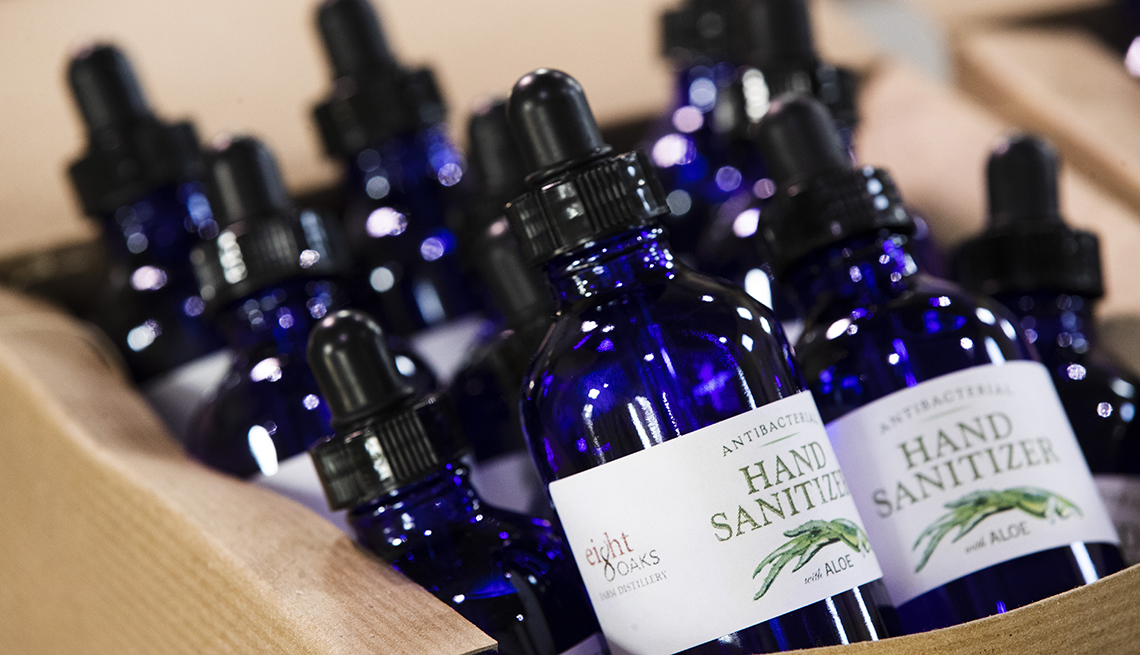
Craft distillers step in to ease hand sanitizer shortage
- Select a language for the TTS:
- UK English Female
- UK English Male
- US English Female
- US English Male
- Australian Female
- Australian Male
- Language selected: (auto detect) - EN
Play all audios:

At one time Scott Jendrek might have been fighting coronavirus from a lab. A biotechnology veteran, he spent much of his career “making vaccines and therapeutics for phase one and phase two
clinical trials.” Three years ago, the longtime homebrewer and spirits aficionado followed a dream and opened Patapsco Distilling in Sykesville, Maryland, producing craft bourbon, gin, rye,
vodka and exotic spirits such as blood orangecello and black walnut liqueur. Now his customers can sample a new product that's very much in demand: hand sanitizer. Patapsco is among
hundreds of craft distilleries nationwide helping alleviate a shortage of alcohol-based hand cleaner, which has almost disappeared from stores as coronavirus grips the nation. "When
they sent out the memo that you can cut through all the red tape that's usually required to make hand sanitizer, we figured what the heck, let's do our part,” says Jendrek,
referring to a move that the federal Alcohol and Tobacco Tax and Trade Bureau (TTB) made last week. The agency loosened permitting rules on producing hand sanitizer, effectively authorizing
distillers to start making the stuff immediately. 'THE SAME BRIGHT IDEA' Washing your hands remains the best way to combat coronavirus infection, but the federal Centers for
Disease Control and Prevention recommends hand sanitizer with at least 60 percent alcohol content as a backup when soap and water aren't immediately available. Ethanol, the primary
ingredient in sanitizers such as Purell, is also the type of alcohol used to make spirits. That has given distillers a new use for production lines slowed because bars, restaurants and their
own tasting rooms are shuttered. "The need for one ethanol product basically coincided with the natural decline, in large part, of the market for our core ethanol products,” says
co-owner Jordan Cotton of Cotton & Reed, a rum producer in Washington, D.C. “I think pretty much anybody around the country with a distillery had the same bright idea right at the same
time."
